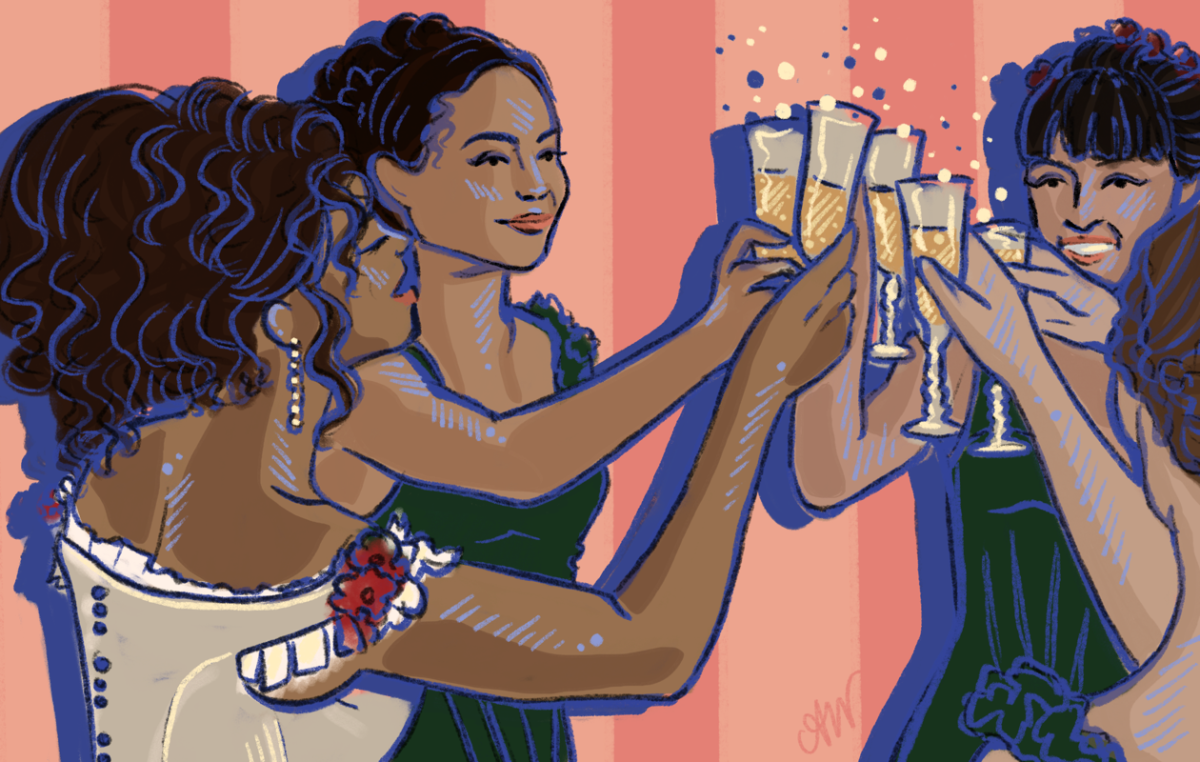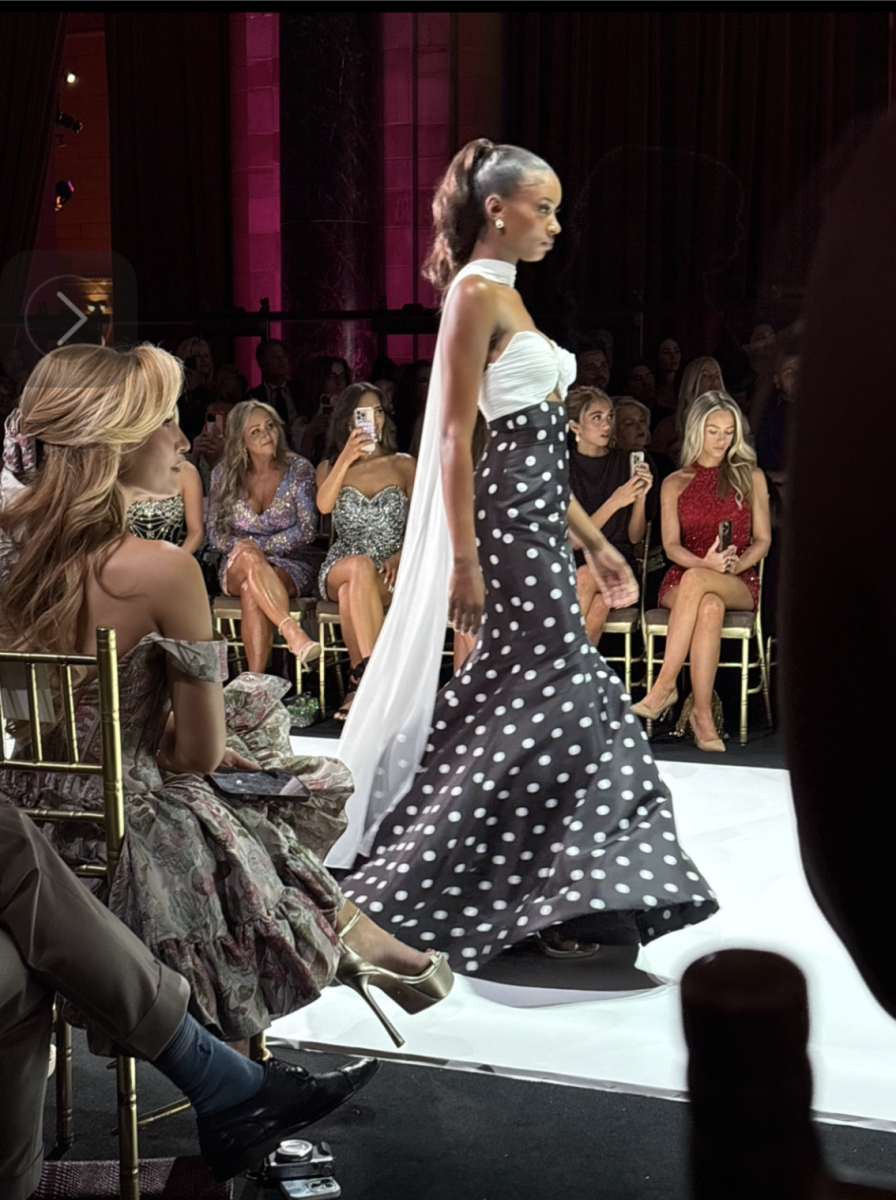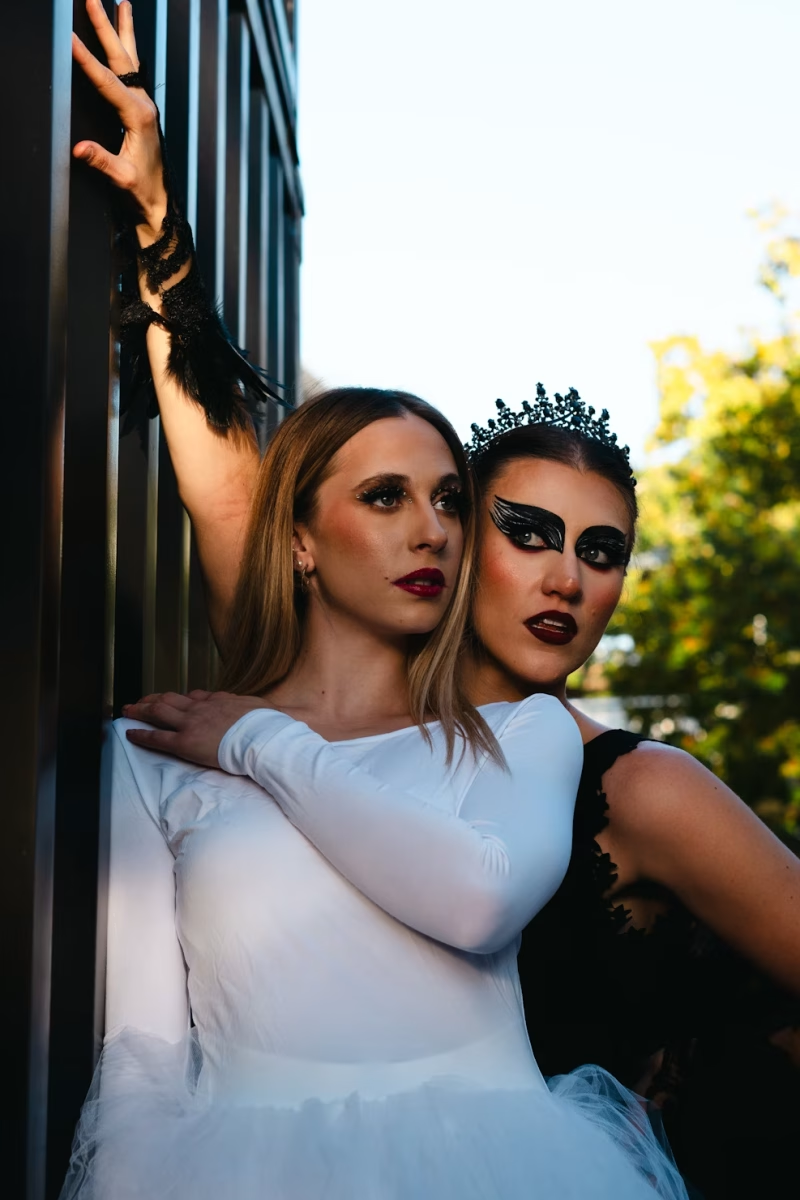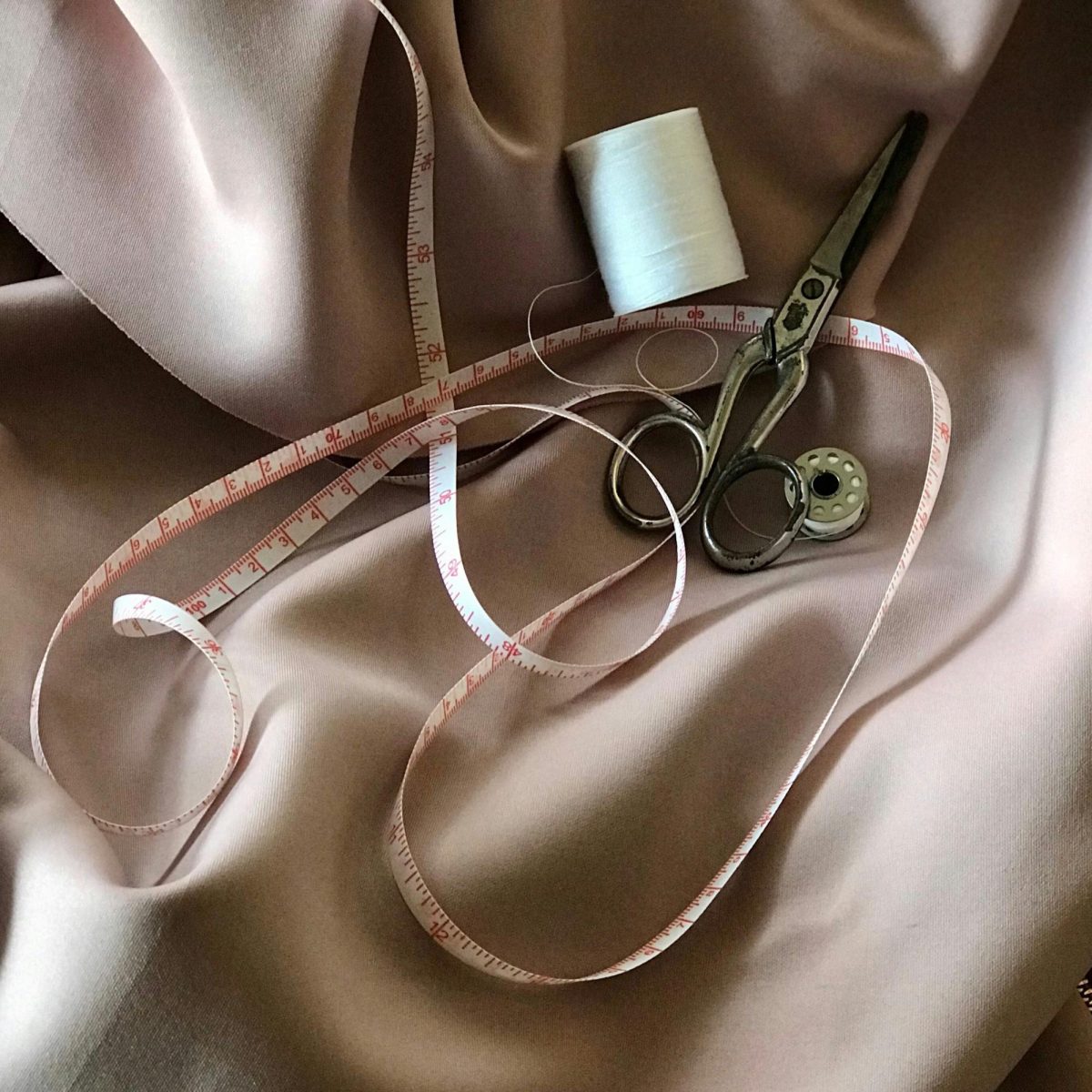My favorite genre of fiction has always been historical. If there is one thing that has remained the same throughout the course of my life, it is this. One of the most instrumental reads of my childhood was Liza Ketchum’s “Newsgirl,” a story following a young girl who pretends to be a boy in order to sell newspapers during the time of the San Francisco Gold Rush. Not only do I attribute much of my knowledge of this historical time period to the hyper fixation this book brought me, but it also helped launch my love of journalism and literature. An issue I’ve been facing lately is that good quality historical fiction media has been few and far between these days.
That has changed with this week’s release of “The Buccaneers,” a historical fiction television series surrounding the lives of five young American women who traveled to London to find husbands. The cast includes Imogen Waterhouse, Kristine Froseth, Aubri Ibrag, Josie Totah and Alisha Boe. Not only does the plot and cast seem perfect, but the soundtrack includes an original song by Gracie Abrams–seriously, what more could I want? While the series is not technically based on the lives of real people, critics will most likely still find a way to complain about any and all historical inaccuracies found in the script.
One of my favorite television shows of all time is The CW’s “Reign.” A series focusing on the life of Mary Stuart, Queen of Scots, and her rise and fall from power. I began watching this series in middle school and fell in love with every aspect of it. The costumes, the setting and the way that it served as a real life history lesson (while the show was not entirely historically accurate, the main plot points tended to be, and it served as a great starting point for anyone interested in learning more about history). Naturally, I developed a hyper fixation on Mary, Queen of Scots, and the entire House of Tudor. I read an entire book on the family tree, and convinced everyone around me that Mary was the real victim of history. I stand by this statement to this day. .
Over the course of my life, I have fallen in love with many different historical periods thanks to the media I’ve consumed. For years, I looked at “Reign” like it was the pinnacle of historical accuracy. But while scrolling through X one day last year, I came across a thread where a user claiming to be an expert on historical fashion was critiquing different period pieces. I was shocked to find “Reign” on this list. The user claimed that the dresses were entirely wrong and even looked bad. I was actually offended by this. Many users agreed, but plenty also came to the show’s defense. After all, it was just fiction, right?
The more that I thought about it, the more I realized that historical accuracy is hardly considered nowadays when it comes to creating any sort of media based on the past. Writers used to dedicate years to studying the time period which their story would be set in, trying to weave intricacies throughout the fabric of the story that would please anyone with an ounce of historical knowledge. It just isn’t like that today. One of the most profound examples can be found in Sofia Coppola’s film “Marie Antoinette.”
The movie is centered around the real life Queen of France Marie Antoinette’s life, and was criticized heavily due to Coppola’s unique approaches. Coppola is famous for her sometimes odd stylistic choices, and this film in particular included many. Despite being filmed in Versailles (an unprecedented opportunity), and having realistic costumes, the soundtrack was filled with pop punk music and there is an infamous shot where a pair of Converse can be seen amongst the 18th-century monarch’s belongings.
Coppola’s goal here was to blend the old with the new, and portray Antoinette as “just a girl.” Although some films and television series make these sorts of stylistic choices on purpose, and many do not aim to be completely historically accurate when it comes to the plot, in the case of “Reign,” it is safe to assume that the costume mishaps were not deliberate.
I think that in general, historical accuracy should be looked at on a sliding scale when it comes to any sort of fiction story. The only time when it should be considered a valid criticism is if the director or producers or writers explicitly say that the project is meant to be historically accurate. Stylistic choices and freedom matter greatly when creating any sort of art. No one should be detained by the shackles of the past in order to create media for the future.
“The Buccaneers” is very obviously not meant to be taken as a history lesson. This can be assumed from the soundtrack alone, but modernizing stories and the different elements of storytelling is important. As we’ve seen with shows like “Bridgerton,” flipping the script can garner positive results. In a world where diversity and inclusion are valued now more than ever, being able to watch characters represent minorities that did not have a voice during their time periods is necessary. Along with representing BIPOC in the upcoming show, there will also be an LGBTQ+ storyline for one of the main characters. Whether or not historical fiction is accurate, it should always be entertaining. “The Buccaneers” will surely deliver on that front, and I for one can’t wait.
Support Student Media
Hi! I’m Annie Gleydura, A Magazine’s editor-in-chief. My staff and I are committed to bringing you the most important and entertaining news from the realms of fashion, beauty and culture. We are full-time students and hard-working journalists. While we get support from the student media fee and earned revenue such as advertising, both of those continue to decline. Your generous gift of any amount will help enhance our student experience as we grow into working professionals. Please go here to donate to A Magazine.













